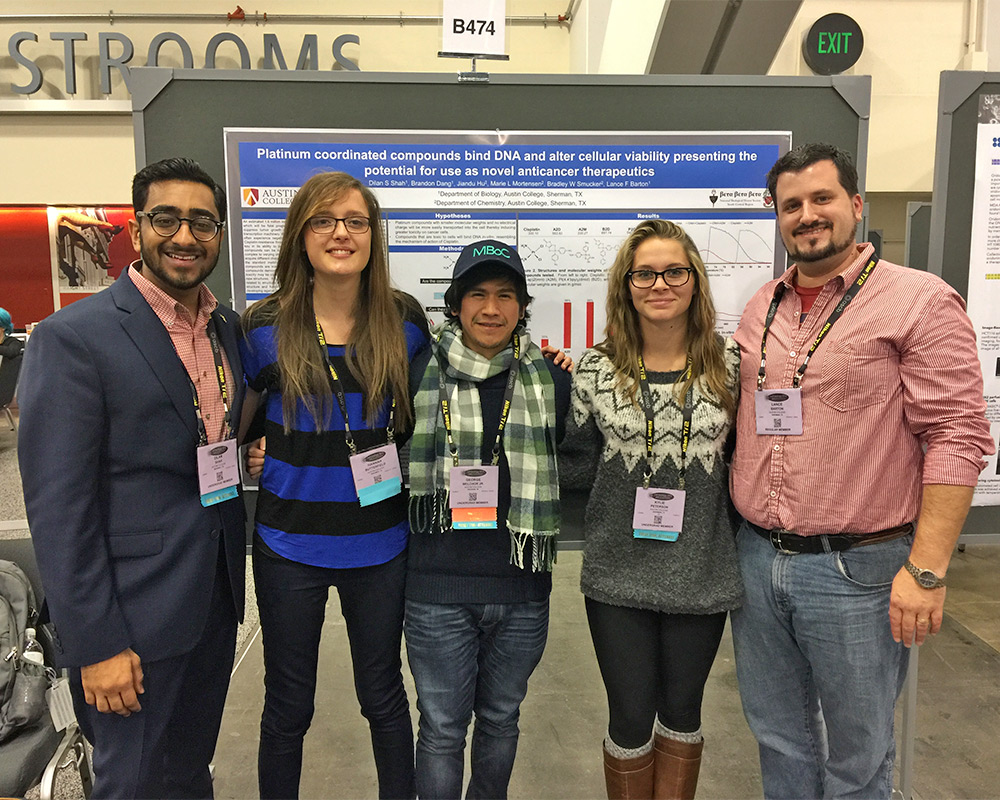Welcome to the Proteasome Biology Research Program at Austin College




For Students
Previous Student Accomplishments
For Potential Collaborators
Contact Information
Email: lbarton@austincollege.edu
Voice: 903.813.2206
Office: IDEA Center 342
Suite: 61612
The Barton laboratory is completely staffed by undergraduate students and the focus of our research program is on understanding the research process and learning novel aspects about biology. Since arriving at Austin college in 2003, I have mentored over 60 students in my research laboratory. Alumni from my laboratory go on to pursue employment in STEM fields or post-graduate degrees including M.D., Ph.D., M.D./Ph.D., M.S., or D.V.M. Alumni have enrolled at institutions such as Johns Hopkins University, Baylor Medical School, Rice University, U.T. Southwestern, U.T. H.S.C. at Houston, Texas A&M University, and Texas Tech University.
Research Description
My laboratory investigates the role of the proteasome activator, PA28g, in the physiology of mammalian cells. Proteasomes are essentially the garbage disposal for the cell. They are large complex proteases that are responsible for the recycling of proteins to amino acids as well as making precise cleavages causing proteins to become inactivated resulting in changes in cellular function. Proteasomes are essential for life at the cellular level and control a myriad of biological processes. Proteasomes, as you can imagine, form complexes with many different proteins responsible for helping to provide specificity for substrate selection and ultimately their biological role.
PA28g (also known as REG-γ or Ki) is one of these proteasome-associated activator complexes. PA28γ belongs to the PA28 family of proteasome activators which also includes PA28α and PA28β. These proteins form ring-shaped complexes that attach to the ends of proteasomes and activate the catalytic activities of the proteasome. PA28α and β have received a significant amount of attention because their expression is linked with signals that are expressed during an active immune response. Furthermore, the expression of PA28α and β also appear to affect the outcome of an immune response against intracellular pathogens. Interestingly, PA28γ is evolutionarily older than PA28α and β and the appearance of PA28γ in the genome also predates the development of an adaptive immune response. It remains unclear exactly what role PA28γ performs for mammals and if it affects the generation of immunity. It is clear that PA28γ can facilitate, in a substrate selective manner, the degradation of specific cell cycle regulatory proteins by proteasomes. It is also evident from numerous reports that several cancers over-express PA28γ and that its role in the cell cycle may provide a selective advantage for cancers.
For more detailed information about projects that you can get involved with contact me.
